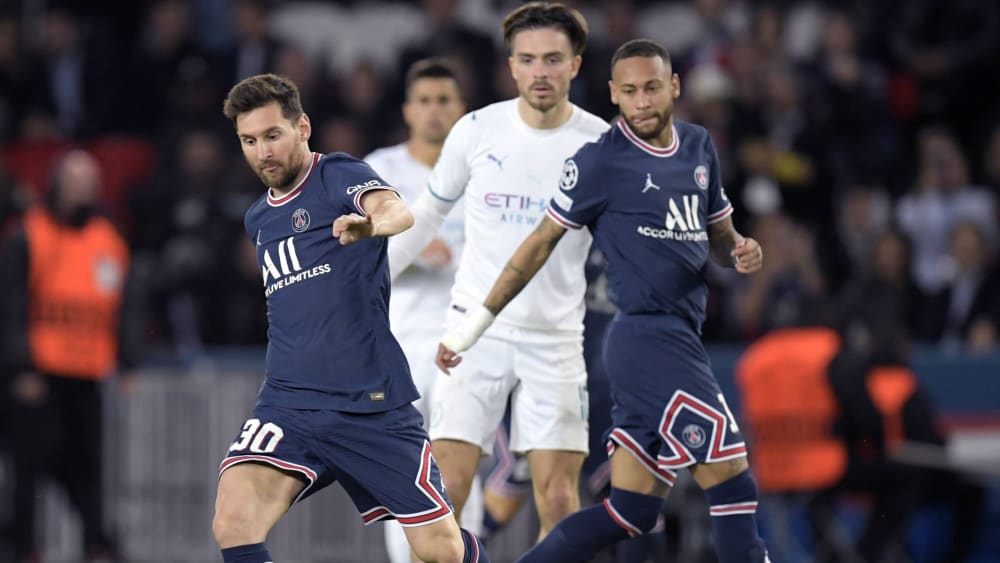In the dispute about the Super League, the European Court of Justice must answer questions from Madrid. The crux of the matter: Is it solely about economic or not also about social aspects? A guest contribution by Dr. Martin Stopper.
The Bosman decision of the European Court of Justice (ECJ) in 1995 has legendary status: the fixing of transfer fees at the end of the contract period was illegal. In practice, however, the revolution failed to materialise; transfer fees still exist, and in considerable amounts! But now the ECJ is to deal more broadly with issues arising from the dispute between UEFA and the founders of the “non-active” Super League.
And these proceedings have an explosive force that could severely shake the foundations of the structures of the European sports model in the form of the football pyramid from Champions League at the top to the district league. Already on 27 May this year, the Spanish Juzgado de lo Mercantil from Madrid, a commercial court, referred the matter to the ECJ for a ruling on a so-called reference for a preliminary ruling.
What must the European Court of Justice decide?
The reference contains fundamental questions relevant to the contentious relationship between UEFA and the founders of the Super League. The ECJ is to decide, as it were, whether or under which conditions UEFA can authorise or ultimately prohibit the organisation of the Super League. According to the Madrid court’s wishes, the issue is to be decided first and foremost under economic aspects – whether it violates the freedom of competition, but also other European fundamental freedoms such as the freedom to provide services or the freedom of movement of workers, if UEFA fights for the preservation of a permeable football pyramid with a unique selling point and threatens or enforces sanctions against the Super League.
But do these issues only affect the economy? Or is there more at stake? Is the European football movement not also culture and the famous cement that holds society together? If so, the European judges should also care about that. Or are the existing laws not sufficient for this?
But before we start weighing up the “legal interests”, we should first ask ourselves, in the manner of Trapattoni, the question: “What do we allow Super League to do? So you set up a new company with private investors and invite all the big, venerable European clubs to play for the European “Super Champion” from now on. Is it possible for someone to come along and “simply” want to take over what someone else has built up and developed into an economic giant – and all that without paying a transfer fee?
What is UEFA’s development work really worth?
Who is responsible for the unique success story of the European Champion Clubs’ Cup up to the Champions League, at least UEFA, but also the clubs involved – in other words, hen and eggs. And now the Super League nest robber comes along and steals the eggs from the nest?
In order to classify this situation economically and legally, it is necessary to assess what UEFA’s development work is really worth in order to be able to determine whether the clubs can simply jump from A to B because they pay the players’ salaries and not UEFA? But it won’t be that easy, because UEFA has been paying the participants in the European competitions since 1955 and has made them what they are now for decades, also and especially in the economic sense. So no hen, no eggs. The Super League can’t just come around the corner and say: “Sorry, we’re taking over now!”
It’s about much more than the commercial values
According to the questions referred, the judges are not to decide whether the Super League would have to pay a compensation sum to UEFA or how much it would be. The ECJ is not hearing a case for damages for unauthorised assumption of performance. There is much more at stake than the commercial values generated in the highest European league. It would be a fatal signal if the ECJ – even if only indirectly – came to such a conclusion.
Perhaps there would then soon be a second European Championship for the national teams, the “Super-EM”, if it were just that simple and the best European national teams were lured with higher premiums.
The sporting idea for athletes and sports fans means that the best can only be crowned if this happens in just one competition. For this purpose, there are sports pyramids, realised in our country via the federation pyramids. The principle is manifested according to the so-called “one-place principle”, which many federations have also manifested in their statutes. This means that an umbrella organisation cannot simply march out and arbitrarily ban all competition. Nevertheless, sport is not only a business, but also a business. It has a special position. Unfortunately, this is not properly reflected in the European laws when sport is mainly discussed in its economic dimension.
Article 165 of the EU Treaty states: “The Union shall contribute to promoting the European dimension of sport, taking into account its specific characteristics, its structures based on voluntary activity, as well as its social and educational function. “
Special legal protection for sport in Europe is low
In 2011, the EU Commission also thought about this and found that sport and EU law could somehow be brought into a special harmony. The position paper on the special position of sport in Europe states: “The concept of the special position of sport is taken into account when assessing whether sport rules are in line with the requirements of EU law”.





